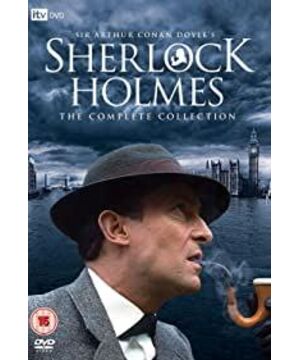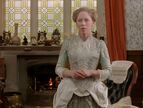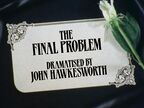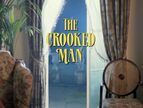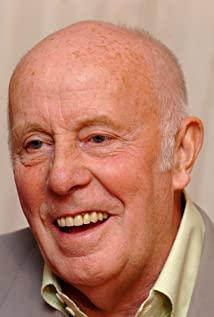first season of
" Holmes Outside the Mirror" , "The Bohemia Scandal": The
opening shot is Watson returning to Baker Street after a country trip. Before seeing Holmes, he was a little worried about Holmes' emotional problems. The discussion about drug use comes from the "Four Signatures", which is placed here to help establish the tone of the relationship between the two individuals and establish their respective character traits. But when the "Four Signatures" was actually filmed later, I couldn't use this segment. When Watson persuaded Holmes to give up taking drugs, he only gave the latter a back. This was based on the scene from the monster movie "Frankenstein". The editor deliberately delayed the time when Holmes turned around so that readers could slowly see the protagonist. Image. When Holmes turned around, the lines were extremely gorgeous, and the usual actor would read them aloud, but Jeremy Bright's lines were more somber and painful.
He is more satisfied with the groom's appearance, but not very satisfied with the image of the priest, because it is too clown.
Jeremy Bright thinks the screenwriter of this episode is too loyal to the original, a bit boring. He interpreted Holmes' mental activity when he was taken care of by Irene and thought it was quite subtle. And refused to play the signature violin at the end. In the end the male protagonist gave in. His moves were very beautiful, and the dubbing was done by the daughter of the soundtrack author. In addition, the daughter also played the opening violin music.
"The Alone Cyclist"
"The Alone Cyclist" was the first to be filmed, but it will be played in the fourth episode. The first director fled to film a "better" scene a few weeks before filming started. The new director Paul Annett stopped Jeremy Bright’s strange ideas. He reminded Jeremy Bright not to bring out his true colors too much, and not to explain Sherlock Holmes as a weird person. He does not recommend using too many strange disguise in a play for several years, and prefers to use body language to portray characters. The image always reminds Jeremy Bright to stay calm. The director thinks that Jeremy Bright realized that he was playing the savior of the Twenty Worlds only during the performance of the role. He also directed "The Bohemia Scandal" and "The Copper Beech Case." The first thing he and Bright did was to buy the famous pipe. Bright strongly demands loyalty to Conan Doyle. The most exciting segment is the boxing posture created by Jeremy Bright, used to fight the villain Woodley, which is a standard Victorian posture.
When Bright was filming the scene holding Smith’s flat fingers for analysis, he deliberately showed that Holmes thought the tactile sensation was very good. This is a girl who is determined to sit on a hard chair and can ride a bike. Once he becomes aware, he immediately Let go of her hand, and reached out to touch her face, her voice was smooth and sweet, but then Holmes returned to the machine-like rigor. In the same scene, Holmes asked about Watson's observational power, showing the two close relationship between teacher and student, Watson's ingenuity.
"Navy Agreement" In the
"Navy Agreement", director Alan Grint believes that at the end of the original, the performance of Percy's turmoil when the letter was lost is too intense, and he wanted to make the film a little more moderate, which was strongly opposed by Bright.
Bright also regarded Rose's eulogy particularly sublimely, and was willing to copy the scene as it was illustrated by Paget. In fact, Bright is passionate about similar fragments of broader thinking about life. Since then, in almost every episode, at least one scene is copied from Paget's illustration. Bright himself has made subtle comments on roses before. He believes that roses are the only flowers that are still beautiful after being picked, and are the embodiment of sacredness and light.
Bright also wanted to reproduce Holmes' philosophical comments when he saw a distant boarding school on the train, but was rejected by the screenwriter because the screenwriter thought it would be difficult to reproduce the vision they saw on the train in a realistic TV series.
Bright read about the traits of class in this play. Percy was in the upper class and had friendship with the middle class of Watson, and married with the blacksmith's family. At the same time, Holmes noticed that the Minister of Foreign Affairs could not afford new shoes, so he changed the soles.
In "The Humpback Man", the old lovers meet, and the original description is under a dim gas lamp. The screenwriter was changed to a collection of people coming and going. Aroused strong dissatisfaction with Bright. He thinks that the taste of the vicissitudes of life in the original book is lost. He and Watson's actor David Baker consumed tears and even almost blood did not keep the scene.
The screenwriter and producer made the adaptation out of the requirements for the filming of the TV series, which led Bright to believe that the film was too far away from the original. But the platemakers also had some opinions on Bright, because Bright’s father was a soldier, and the latter opposed Bright’s acting career. Therefore, Bright himself has been a little uncomfortable with the military affairs. This is reflected in the filming of this drama. The filmmakers felt that in the first few scenes, Bright's attitude was not correct and a little emotional.
The most exciting scene is that Bright interrogates Fiona Shaw if she can tell the truth. The screenwriter added a self-made answer here. Xiao categorically rejected Holmes. She said: "Speaking counts, talking counts." This is an answer that emphasizes the theme of the film: loyalty and trustworthiness.
"The Dancing Man"
"The Dancing Man" is considered by the producer and Bright to be the best episode of the first season, but it is a pity that the screenwriter Schoen has only edited this episode. Bright and Baker are getting better together. The opening describes their peaceful home life. Watson explained to others that the code was deciphered because E is the most commonly used letter in the alphabet, implying that Watson took a peek at Holmes's cryptographic monograph, which was a bridge segment compiled by them. Bright continued to make important script suggestions. He advocated fully embodying the part of the original work where Holmes did not recommend Watson to buy stocks. He asked for a remake and quickly recited the lines in the book intact, which well reflected the energetic and exciting atmosphere in the original work. This brought him closer to the role of Holmes. He also loved the scene where Baker stood up in front of the police who didn't know Tarzan and said "This is Sherlock Holmes".
Bright's interpretation of the relationship with Watson is to position Holmes as a machine, and once emotions appear, it will be suppressed. But this does not mean that he does not value Watson. He believed that Holmes needed Watson more than Watson needed Holmes.
After all, Bright himself played Watson in the drama. He thought Watson was the one who tried his best to protect the fragile Holmes from harm.
Baker interprets Watson's psychology in this way. In this episode, he embarrassed that Holmes could not save Cupid from death, but in front of the dumb policeman, he made an appearance for Holmes.
"The Speckled Tape Case"
"The Speckled Tape Case" is the most faithful to the original episode of the whole play. From the beginning, Bright's nervous and nervous eyes and body language brought the audience into a Gothic atmosphere. In the scene of telling Helen not to be nervous, Bright bears the pressure that he must not fail and must pass, and the thin oily light on his face can be seen in the film. It's hard to shoot the snake shot in the dark. In fact, there is a clip similar to infrared shooting at the end of the film that works better.
"The Sapphire Case"
"The Sapphire Case" thickened the scene of the wronged person to appear more emotional. The producer's favorite is the scene where Holmes examines the reporter's hat. Bright's own contribution lies in the smoker's tone when he gets up and smokes. If there is no time to find a pipe, cigarettes are enough! The film was staged in June 1984 and has never been replayed on Christmas Day. The soundtrack contains a selection of variations on Christmas carols.
The first season is over. In fact, the crew filmed 13 consecutive episodes, but the audience waited a full year to see the first episode of the second season.
Few cameos were invited in the first thirteen seasons.
View more about The Adventures of Sherlock Holmes reviews


